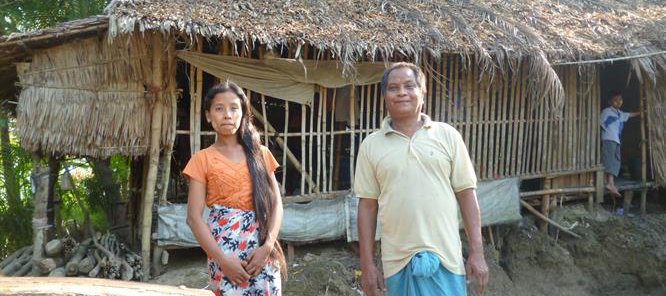How has new technology allowed us to continue our work throughout lockdown?

Caring for and supporting people affected by leprosy has always been a kind of work that requires being physically present. Throughout the Covid-19 pandemic, this has not been possible in the vast majority of cases. Our teams have been working hard to adapt the latest technology so that we can still offer all the support we can.
In Mozambique we have equipped communities with innovative technology
Since the pandemic began, our team in Mozambique have been providing communities and local community counsellors with phones and training on how to use Zoom. In remote villages this technology has made a big difference.
Through calls on Zoom, communities counsellors have been able to hear from people affected by leprosy are coping, they have provided them with Covid-19 health information, and they have supported them with mental health problems. Being able to contact communities in this way has made a huge difference and allowed us to provide support that just would not have been possible during the pandemic without technology.
For the last year, the team in Mozambique have also been providing villages with Raspberry Pi computers. These computers are the size of two credit cards, but they provide a signal that allows those in the village to connect and access lots of resources. These resources include information about leprosy, about Covid-19, and helpful tips on any number of topics, from how to build a stronger house to how to build an efficient rat trap.
These Raspberry Pi computers come equipped with a projector so that, every evening, they project important information onto a nearby wall. Members of the community can gather round to read or watch this information and, if they bring an FM radio, they are able to listen, as well. Although this technology predates the Covid-19 pandemic, it has been a great help at this time.
We have used phones and social media across Myanmar
Our team in Myanmar have been using social media to provide helpful resources to people affected by leprosy in their country. Through their Facebook page they have been providing physiotherapy videos that will help people affected by leprosy who are experiencing pain in their joints.
Meanwhile, other team members have been calling around 70 clients a day to provide them with helpful Covid-19 information, to find out how they are coping through pandemic, and to see if there’s anything we can do to support them. We’ve also provided online counselling training so that those who are experiencing mental health difficulties during the pandemic can receive support.
Our team in India have used their great knowledge of digital innovation
The Leprosy Mission Trust India has many staff members who have great experience of communications. Throughout the pandemic they have been using their communications channels, such as Facebook, Twitter, and their website, to provide helpful Covid-19 information. They’ve even produced resources that explain exactly what Covid-19 means for a person affected by leprosy. They’ve also run a social media campaign, #VirusPeVijay which means ‘victory over virus’.
As well as this, they’ve set up phone banks, so that people affected by leprosy can call a team member who can help to answer any questions they might have about Covid-19 and about the virus.
See more about how our teams in India are making a difference here.
We won’t stop working to transform lives and defeat leprosy
Whether it’s through old technology, like phones, or new technology, like Facebook, Zoom, and Raspberry Pi computers, our teams are using technology to reach out to people affected by leprosy. Covd-19 has provided many challenges, but we are determined to find safe ways to achieve our goal of a world without leprosy.